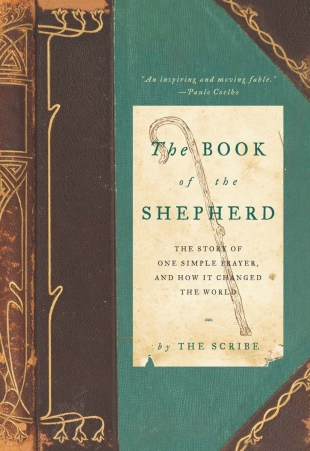Journey is an ideal metaphor for the spiritual life. It encourages us to see our experiences as a movement toward wholeness, holiness, and transformation. Every step counts because it gets us further along the path. As the Trappist monk Thomas Merton once wrote: "Our real journey in life is interior; it is a matter of growth, deepening, and of an ever greater surrender to the creative action of love and grace in our lives."
Paulo Coelho's classic parabolic tale The Alchemist provides access to the theme of the spiritual journey by relating the trek of a shepherd boy from Spain across Africa to find treasure. His outward quest mirrors the process of inner transformation. Joann Davis's The Book of the Shepherd is a similar quest tale set in a mythical time and unspecified place.
When the author purchases a house from a professor and distinguished teacher of the classics, she discovers an ancient book he had purchased. Inside is his note, written on the day of his death, that he needs to get it translated. Davis decides to fulfill his desire. Here is the tale it tells.
In a time when the law stated that an eye for an eye was the only way to deal with trouble-makers and wrong-doers, Joshua, a shepherd wonders if there was another way to live. He witnesses David, a young boy, being brutally beaten by his merchant father in front of a cheering crowd of people. The shepherd is perplexed why no one came to the aid of the poor lad and in a dream hears a still, small voice saying, "I did send help. I sent you." Then a wizened Old Man appears and tells him that if he is to find a new way, his heart must be "as light as a feather."
Looking for David, Joshua meets Elizabeth, a wise servant to the royal family. She has taken the boy in after he was disowned by his father. The shepherd shares the nature of his quest with her, and she offers him a map her father left her that she has hidden in a clay pot at the bottom of the well. Soon Joshua, Elizabeth, and David are on the road. Among those they encounter on their quest are the Storyteller who reminds them of the power of persistence, Orion the Apothecary who claims to be probing the mysteries and the limits of what is possible, the Blind Man who warns them that appearances can deceive, and a Stranger whose smile does not reach his eyes. When they finally reach the cave at the Great Island Sea; they are compelled to muster all their energy, creativity, and courage to seek its treasure.
The Book of the Shepherd is a thematically rich parable about conscience, the importance of dreams, the challenges of bringing forth what is within us, the possibility of being a peaceful warrior, the difficulties of living in a world where "violence flows as naturally as mother's milk," the confidence that comes from the realization that all things happen for the best and can be spiritual teachers, and a buoyant belief that compassion, love, and peace can transform the world.
Within the last few years we've seen a phenomenal growth in popularity of the "Law of Attraction." The most egregious examples are the book and film The Secret which seemed designed to make their authors and promoters rich by encouraging the public's greed and self-centeredness. The Book of the Shepherd in presenting its new way also offers a secret and a law. The author has recast the prayer known as the Prayer of St. Francis into the "Law of Substitution": "Where there is hatred, let me sow love / Where there is injury, let me sow pardon . . ." Just imagine what the world could be like if that law were the dominant one!
